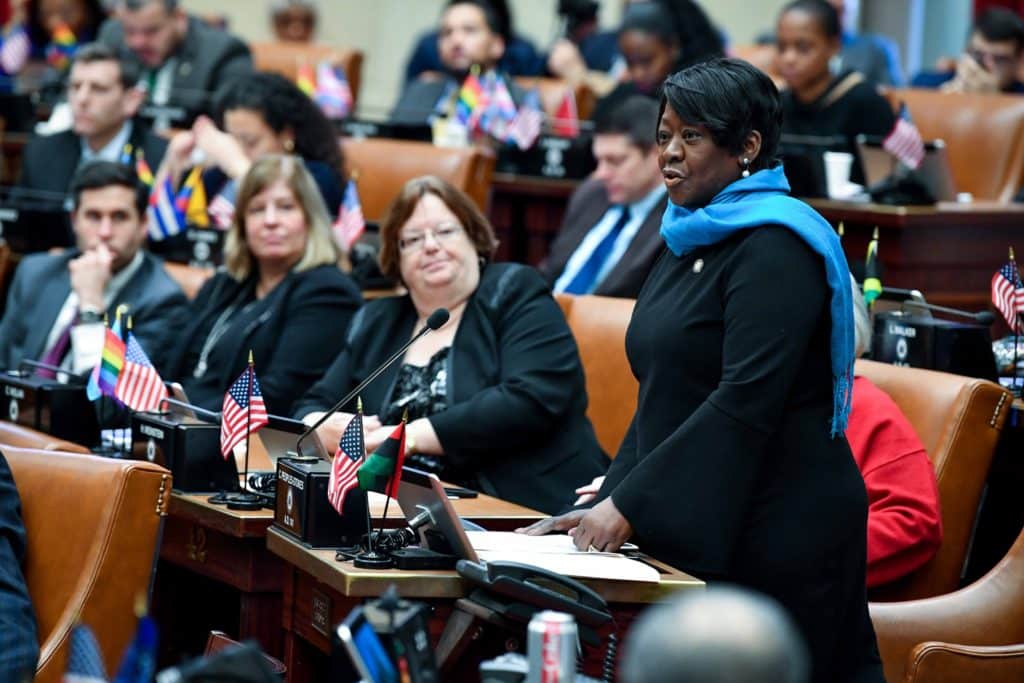Police Commissions: What You Need to Learn
So, the fact that Donald Trump established a commission specifically to evaluate and produce a report on American Policing might have slipped past you. Now, what exactly is a Police Commission, you may ask? Let me clue you in.
The President of the US can, by executive order, assemble a group of people with the intent to gather information on current police practice and recommendations for how policing in America should progress moving forward. Some well-known commissions were put together by President Lyndon B. Johnson, which helped establish a national crime victimization survey, called for improved training and professionalism, and formed the idea of the national 911 emergency call system.
In 2014, after the controversial death of 18 year old Michael Brown, Jr., President Barack Obama created his ‘Task Force on 21st Century Policing’ to open conversation about law enforcement in the current climate. The panel was composed of experts and activists, and other individuals with relevant backgrounds. Some of the most important recommendations in policing history have come from their report, such as outlining use-of-force procedures, making efforts to diversify police forces, and giving consideration to de-escalation as part of the role of law enforcement.
Ultimately, the goal of a Police Commision is to review what’s happening now, and decide how to direct law enforcement going forward. And yet, like so many things we have experienced during Donald Trump’s ascension to the White House, his Police Commission seemed to miss the mark from the get-go.
In 2019, Trump signed the executive order to establish a commission. And throughout the tumultuous year of 2020, the commission worked to “conduct a modern study of the state of American policing and determine specific measures to reduce crime and promote the rule of law,” as stated in the more than 300-page report.
While the nation was still pining over the deaths of Ahmaud Arbery and Botham Jean, while the nation clashed over the unjust and grievous deaths of George Floyd and Breonna Taylor, Donald Trump’s commission cobbled together what would become the ‘President’s Commission on Law Enforcement and the Administration of Justice.’ It is no surprise that the report has taken intense backlash.
Trump’s Commission in a Nutshell: ‘Comply Now, Complain Later’
Initial complaints about a lack of diversity among the group were heard and rejected, causing fallout with a few of the members within the commission early on in the process. Out of the 18 members, all of them tender some sort of law enforcement background. There was a heavy presence of legal officials, bureaucrats, and of course, police representation.
Other immediate concerns for America? Not once in the report is there a mention of the disparity of treatment of African Americans at the hands of law enforcement. The attempt to gloss over one of the highest points of contention between the country and our government triggers an ominous feel that pervades the language of the report; and the specific documented recommendations chillingly bring to mind dystopian novels of the mid-twentieth century. Think that sounds drastic? Let’s learn about some of the things that the commission recommended or relayed in their findings, and think again.
“A threat to the rule of law, and the ability of law enforcement to uphold it, has recently come from self-identified ‘progressive’ or ‘social reform’ prosecutors who purport to share the distrust and cynicism for law enforcement that some in their communities have,” the report states. “Despite their election to a position to enforce the law, these prosecutors view the very laws they enforce as unjust and illegitimate, and therefore seek to undermine that system by unilaterally deciding not to enforce certain laws,” it says.
The report ascertains that local prosecutors should not have the right to decline to prosecute low-level offenses. The commission’s report even goes so far as to dispute that non-violent drug offenders represent a small fraction of the overall federal prison population. According to the Commission’s report, “localities across this country have decriminalized or reduced sanctions for drug use, such as in the case of marijuana….”
The group maintained that efforts to reform drug policy, “merely raise the bar for law enforcement arrests,” but “do not account for the reality that law enforcement officers still must address the complaints about these individuals from community members.” And one recommendation states, “the Department of Justice should examine how local laws and policies that decriminalize or reduce sanctions for drug use or activities related to homelessness impact law enforcement and public safety.”
The report poses a thinly veiled threat against state marijuana legalization and drug decriminalization, and conveys a message that a more aggressive administration of justice may be needed across the United States. One example is the champion cry of ‘Comply Now, Complain Later’. The slogan being touted by law enforcement officials implies that private citizens interacting with police will be just fine if they follow the CNCL method when interacting with police. Yet as Americans have witnessed time and time again, police brutality does not wait for invitation, and this recommendation is some heavy duty propaganda.
If you aren’t alarmed yet, the report also goes so far as to call upon the US Department of Justice to recognize qualified immunity for law enforcement agents. Effectively, this would mean that the ultimate Federal Agency in charge of holding law enforcement accountable, would be required by law to protect any officers who injured or killed a citizen. Again, the vibes are coming straight out of George Orwell’s 1984.
And while we’re on the subject, let’s talk about law enforcement and technology. The report includes recommendations that policing take efforts to keep up with current crime by increasing its access to technology. And yes, of course, they are planning to trample right over your basic civil rights to get it. Face recognition, license plate recognition, access to private surveillance footage, and access to encrypted personal data from cellular devices are all items listed in the report as possible ways to equip law enforcement with the tools they need to administer justice. Additionally, cited in the report is the notion that police officers who are involved in altercations should be privy to body camera footage prior to speaking with internal investigators.
It’s as about as scary as you could imagine, when it comes to the Trump regime having a say in American policing trends. They wish to forgo accountability for immunity, increase the level of control of officers, and gain access to private information in a clear violation of rights. Fortunately, there are many reformists and activists who are standing up against the warnings and recommendations of the report.
Response to the Commission and Report:
In the spring of 2020, the NAACP Legal Defense and Education Fund filed a suit challenging the report, stating that the Commission violated laws in multiple ways.
Senior US District Judge John D. Bates reviewed complaints that the Commission did not meet membership regulations, operated without a charter, failed to appoint officers, failed to give timely notice of hearings for the public to attend, and failed to make pertinent documentation available to the public.
Judge Bates reiterated, “Especially in 2020, when racial justice and civil rights issues involving law enforcement have erupted across the nation, one may legitimately question whether it is sound policy to have a group with little diversity of experience examine, behind closed doors, the sensitive issues facing law enforcement and the criminal justice system in America today.”
And so, the fate of the ‘President’s Commission on Law Enforcement and the Administration of Justice,’ is on hold. Judge Bates originally issued an order halting Trump’s Commission proceedings, as well as any plans to share the report as planned. Since, the judge has ruled as follows: the report can be released, but must include a disclaimer written by the judge, attesting to the fact that the Commission violated federal laws; or the commission may rectify their shortcomings, amend their report, and release it with the blessings of the federal court.
While the days ahead are uncertain, in many respects, it is clear that the Trump Administration lacked a respect for states’ rights to decriminalize and legalize, allowed his commission to violate federal laws, and alienated a nation of citizens who are looking to broker a better future with citizens and law enforcement in our future, regardless of what party lines they land on. We can only hope that the official President-Elect Joe Biden will have a firmer grasp on American freedoms, and make efforts to build bridges instead of burn them.
Additional Resources:
At The Weed Blog, we strive to produce the latest online news resources regarding marijuana. We also review various strains of cannabis or other edible counterparts. We are committed to helping you find valuable information about marijuana on our website. With marijuana laws constantly changing, learn from us what you can do to promote activism in your area. Otherwise, consider these other top-tier articles regarding cannabis:
Montana: Adult-Use Legislation Takes Effect
NBA Suspends Marijuana Testing for the 2020-21 Season
Man Serving 90-Year Weed Crime Sentence Released from Prison





